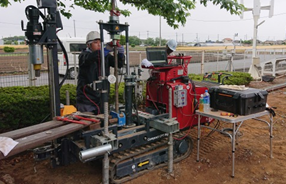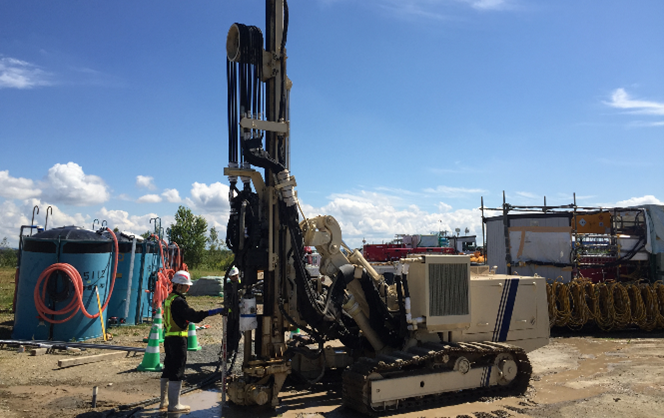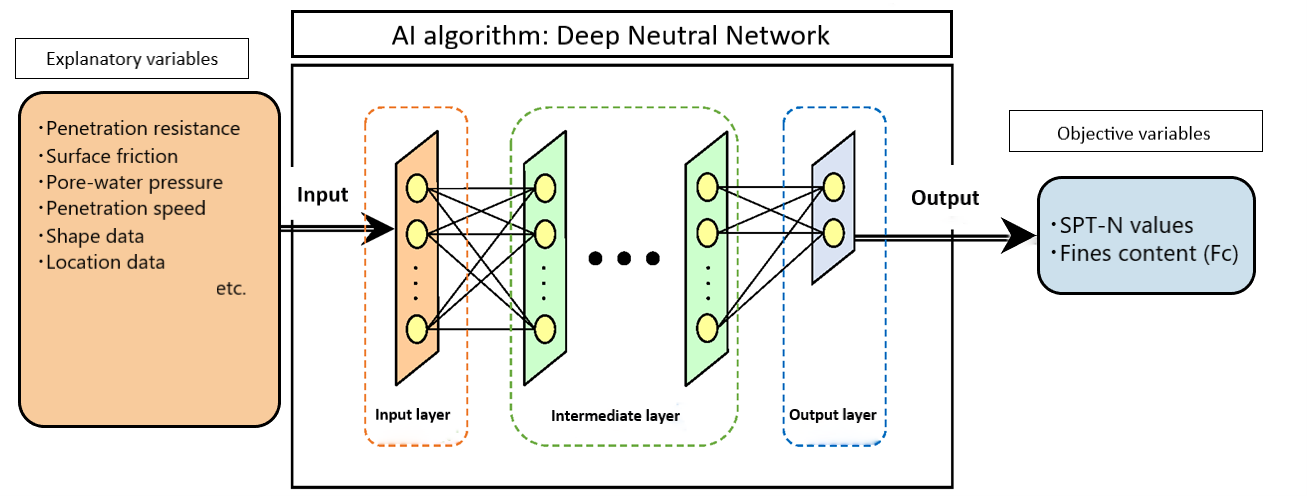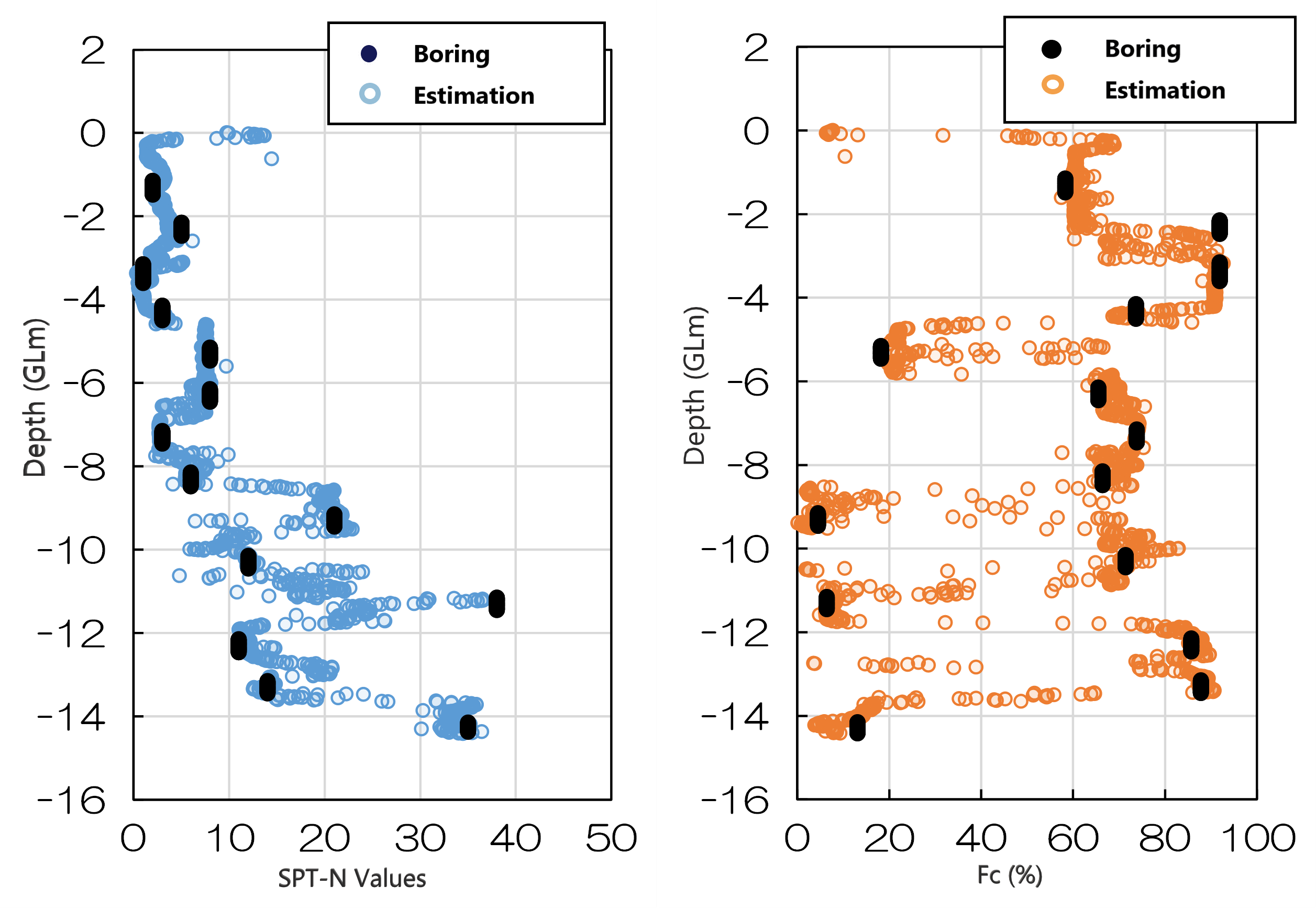This Page is Home![]() Updates
Updates
What's New
Penta-Ocean Construction Co., Ltd.
Takuzo Shimizu, President, CEO and Representative Director
Development of “Sounding AI”, an Estimating Technique for Soil Constants
Tokyo, Japan - Jan. 26, 2023 - Penta-Ocean Construction Co., Ltd. (President, Takuzo Shimizu) has recently developed a new technology “Sounding AI”, which utilizes Artificial Intelligence (AI) to estimate soil constants based on raw data obtained by sounding surveys of the ground.
“Sounding AI” estimates with high accuracy an “SPT-N value”, an indication of ground stiffness and strength, and “Fine Fraction Content, or Fc”, an indication for soil classification, without relying on expert engineers’ expertise or experience. When used instead of the conventional boring investigation method during the additional inspection, the new technique enables a 23% improvement in cost-efficiency and a 35% reduction in time spent for the surveying, while minimizing the labor of engineers and human errors and achieving operational efficiency.
Sounding Survey Method
A sounding survey method is an in-situ geotechnical investigation method to estimate soil constants based on various resistance values obtained by vertically pushing a resistive rod into the ground and applying loads such as percussions and rotations. As the variations, an Electric Cone Penetration Test (CPT) is commonly used worldwide as a standard ground survey technique, as well as a Rotary Sounding Test (RST), which obtains soil constant estimates from the movement of a rotational torque and the drilling speed during the chemical injection work or the anchoring work for the improvement or reinforcement of the ground.
Conventionally, engineers would determine soil constants by comprehensively applying the resistance values obtained from sounding surveys to the empirical formulas and charts, with consideration of the results of boring explorations in the neighboring areas.
Sounding AI
The “Sounding AI” is an AI model which estimates for the SPT-N values and Fc for two types of soundings: the Electric Cone Penetration Test (CPT) and the Rotary Sounding Test (RST).
Using the Deep Neural Networks (DNN), one of the machine learning algorithms, the new model has been developed through training the correlations among the sounding survey data of about 1,800 nos., the results of boring exploration results and various soil tests over the past 10 years, as well as the cone driving records for each operation, which were considered irrelevant before. In addition, by implementing a multi-task learning algorithm that analyzes the correlation between the SPT-N values and Fc, the model enables the extraction of features, which have been impossible to achieve with engineers’ expertise or experience alone, improving the accuracy in estimate. In the verification tests conducted at Tokyo International Airport, the estimate error (root mean square error) of the SPT-N value was 4.3*.
Construction record and features of “Sounding AI”
To this date, we have conducted the Rotary Sounding Tests using this technique for ten soil improvement works by chemical injection. The chemical injection work requires proper control of ground injection speed in accordance with the value of Fc, in order to prevent grout leak or eventual heaving of ground surface. This technique provides the Fc value for each borehole, allowing for more proper grout injection speed control.
We will continue to implement this technique for ground survey works across various construction sites to contribute to the improvement of work efficiency and construction quality.
*Estimation Method of Soil Constants by Introducing AI Technique to Sounding Surveys, Journal of JGS, January 2022.




